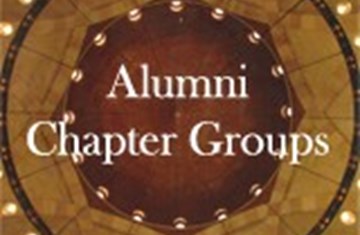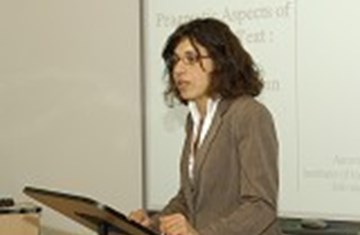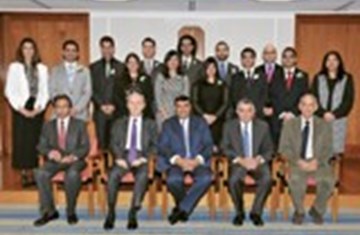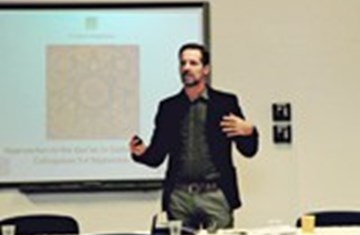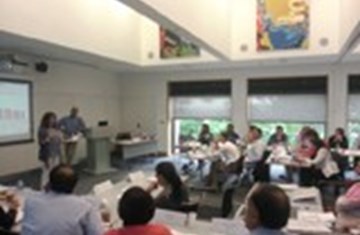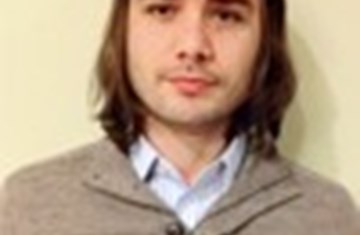In Memory of Professor Mohammed Arkoun
During his academic career, spanning more than five decades, Prof. Arkoun was an outstanding research scholar and a rigorous critic of the theoretical tensions embedded in the field of Islamic Studies. He was a courageous public intellectual who was a powerful voice in the frequently contentious debates on Islamic modernism and humanism.
A native of Algeria, Mohammed Arkoun was born in 1928 in Taourit-Mimoun, a small village in Great Kabylia. His mother tongue was Berber, with French being his second and Arabic his third language. After attending the village primary school, he completed secondary school at Pères Blancs in Oran. Later, he studied at the Faculty of Literature of the University of Algiers and at the Sorbonne in Paris.
Professor Arkoun was Professor Emeritus of the History of Islamic Thought at the Sorbonne, a post he held since 1993. His previous career took him to universities worldwide, starting in Strasbourg, where he was a Professor at the Faculty of Philology (1956-1959). Over the next four decades, he held various positions at Lycée Voltaire (1959-1961), Sorbonne University (1961-1969), Lyon II University (1969-1972), Sorbonne Nouvelle University (1972-1992), the University of California in Los Angeles (1969), Louvain-La-Neuve University in Belgium (1977-1979), Pontifical Institute of Arabic Studies in Rome, Princeton University (1985), Temple University in Philadelphia (1988-90) and the University of Amsterdam (1991-1993). He was a Fellow at Wissenschaftkolleg in Berlin (1986-87 and 1990) and the Institute of Advanced Studies in Princeton, USA (1992-93).
Prof. Arkoun established his scholarly reputation with his early studies, such as Traité d'éthique (1969) on the historian and philosopher Ibn Miskawayh. Thereafter, his focus shifted from the classical period to contemporary studies. He wrote extensively on Islam and modernity. Prof. Arkoun’s critical approach endeavoured to rethink the role of Islam in the contemporary world. His sophisticated interrogation of the issues provided a welcome counterpoint to the highly ideological debate about Islam in both the Muslim world and the non-Muslim West.
He played a significant role in shaping Western scholarship on the Muslim world. As the editor of Arabica, he maintained the journal’s high standards of scholarship while broadening its scope considerably. He was the author of numerous books in French, English and Arabic, including most recently: Rethinking Islam (Boulder, CO., 1994), L’immigration: défis et richesses (Paris, 1998) and The Unthought in Contemporary Islamic Thought (London, 2002). His shorter studies have appeared in many academic journals and his works have been translated into several languages.
In 2001, Professor Arkoun was asked to deliver a series of Gifford Lectures entitled Inaugurating a Critique of Islamic Reason. These lectures enable a notable scholar to contribute to the advancement of theological and philosophical thought. In addition, he was the recipient of the Seventeenth Georgio Levi Della Vida Award for his lifelong contribution to the field of Islamic Studies.
Prof. Arkoun also served as a jury member for the Aga Khan Award for Architecture and, in 2002; he was a member of the international jury of the UNESCO prize for the promotion of peace.
The President of the CFCM (French Council of the Muslim Faith), Muhammad Mousaoui referred to him as a “great Muslim thinker and true intermediary between cultures… who was convinced of the virtues of dialogue between the Muslim and the Western worlds. Mohammed Arkoun refused simplistic oppositions between cultures of Islam and Europe.”
The IIS pays tribute to this outstanding scholar who dedicated much of his life to the study of Muslim thought and societies, and by doing so made an original contribution to the field of Islamic Studies. He will be remembered for many years to come by his many colleagues, friends and students at The Institute of Ismaili Studies.

